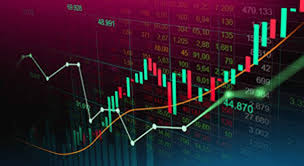
A Comprehensive Forex Trading Course for Beginners
Forex trading can seem daunting at first, especially for beginners looking to dive into this vast and complex market. However, with the right knowledge and resources, you can start trading Forex with confidence. This article will guide you through the essentials of Forex trading and provide you with resources to get started, including forex trading course for beginners Cameroonian Trading Platforms that could help you in your journey.
What is Forex Trading?
Forex, short for foreign exchange, refers to the global marketplace for buying and selling currencies. Unlike other financial markets, Forex is decentralized and operates 24 hours a day, five days a week, making it a popular choice for traders worldwide. Traders participate in this market by trading currency pairs, aiming to profit from fluctuations in exchange rates.
Why Learn Forex Trading?
There are several reasons why learning Forex trading can be beneficial:
- Global Market: Forex is the largest financial market in the world, with a daily trading volume exceeding $6 trillion.
- Accessibility: You can start trading with a relatively small amount of capital compared to other markets.
- Flexibility: The market operates 24/5, allowing you to choose trading hours that fit your schedule.
- Leverage: Forex brokers often offer high leverage, enabling you to control larger positions with minimal capital.
Key Concepts in Forex Trading
Before you jump into trading, it’s essential to understand some fundamental concepts:
- Currencies and Pairs: Currencies are traded in pairs (e.g., EUR/USD). The first currency is the base currency, while the second is the quote currency.
- Bid and Ask Price: The bid price is the price at which you can sell a currency pair, and the ask price is the price at which you can buy it.
- Spread: The difference between the bid and ask price; it’s how brokers make money.
- Lots: Forex is traded in lots, which represents a specific amount of currency (e.g., a standard lot is 100,000 units).
Choosing a Forex Trading Course
Finding the right Forex trading course can significantly impact your learning experience. Here are some tips on how to choose a suitable course for beginners:

- Reputation: Look for courses with positive reviews and credible instructors who have practical trading experience.
- Content: Ensure the course covers essential topics such as market analysis, risk management, trading strategies, and psychology of trading.
- Support: A good course will offer support, whether through forums, live Q&A sessions, or one-on-one coaching.
- Practical Training: Theoretical knowledge is vital, but hands-on practice is equally essential. Look for courses that include demo trading and simulations.
Essential Trading Strategies
Once you have a fundamental understanding of Forex trading, you’ll want to explore various trading strategies. Here are a few popular strategies:
- Scalping: A short-term strategy where traders aim to make small profits from tiny price changes, often executing multiple trades in a day.
- Day Trading: Day traders open and close positions within a single trading day to capitalize on market volatility.
- <strong swing trading: Swing traders hold positions for several days or weeks, aiming to profit from price swings.
- Position Trading: This long-term strategy involves holding positions for months or even years, relying on fundamental analysis.
Risk Management in Forex Trading
Proper risk management is crucial for long-term success in Forex trading. Here are some strategies to help you manage risks:
- Set a Stop-Loss: This automatically closes your trade at a predefined price, limiting your losses.
- Use Proper Leverage: High leverage can amplify both profits and losses. Use it wisely to avoid significant drawdowns.
- Risk Only What You Can Afford to Lose: Never risk your entire trading capital on a single trade; set clear risk-per-trade levels.
- Diversify Your Trades: Avoid putting all your capital into one currency pair. Diversifying can help spread risk.
Choosing a Forex Broker
Your choice of a Forex broker can significantly impact your trading experience. Here are some factors to consider:
- Regulation: Ensure the broker is regulated by a reputable authority to protect your funds.
- Trading Platform: Check if the broker offers a user-friendly trading platform with the tools you need.
- Fees and Spreads: Compare the trading fees and spreads of different brokers to find competitive pricing.
- Customer Support: Responsive customer support can help you resolve issues quickly.
Conclusion
Forex trading can be a rewarding endeavor if approached correctly. By investing time in education, practicing with demo accounts, and employing sound trading and risk management strategies, beginners can build a solid foundation for a successful trading journey. Remember, patience and continuous learning are key to thriving in the Forex market.